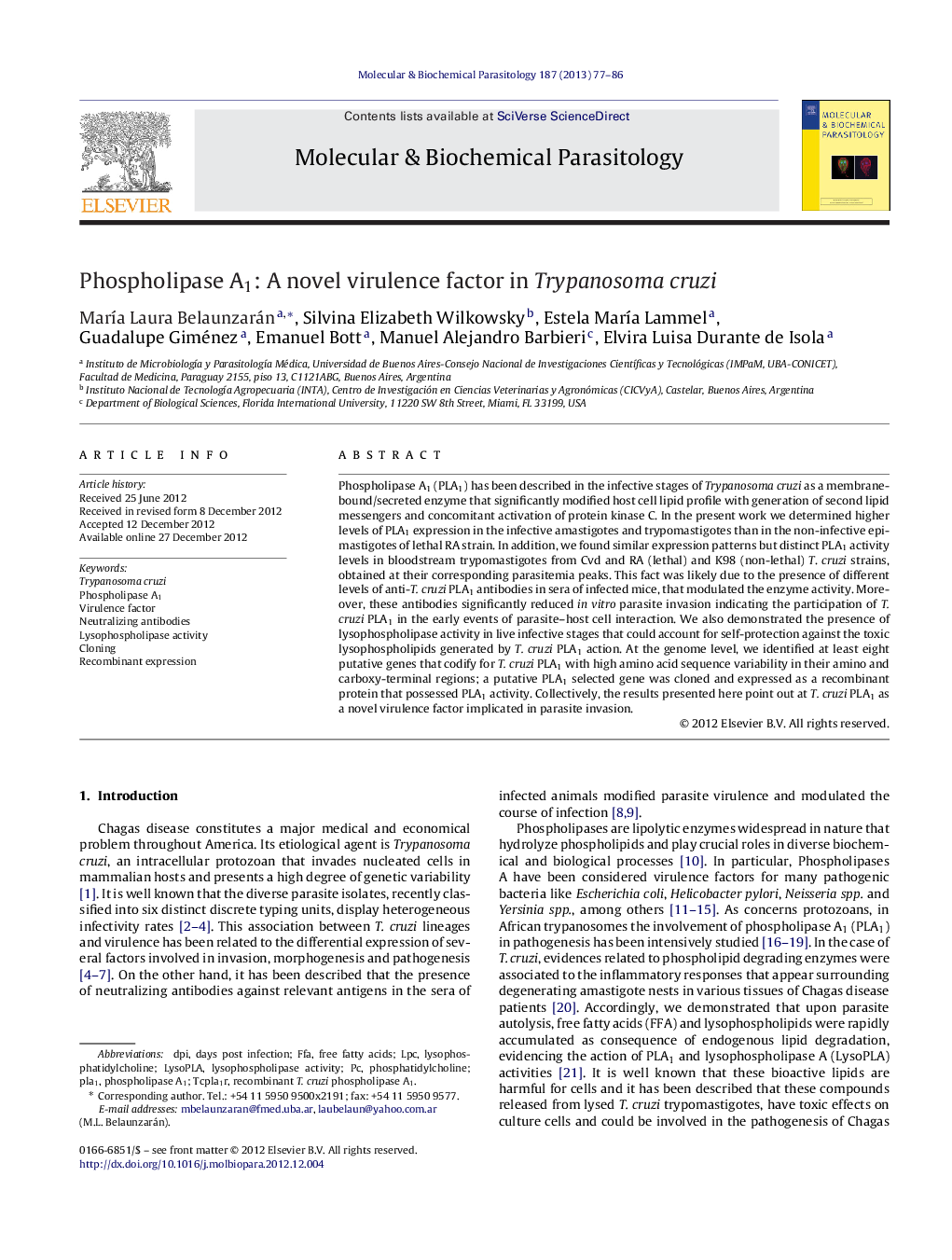| Article ID | Journal | Published Year | Pages | File Type |
|---|---|---|---|---|
| 5915492 | Molecular and Biochemical Parasitology | 2013 | 10 Pages |
Phospholipase A1 (PLA1) has been described in the infective stages of Trypanosoma cruzi as a membrane-bound/secreted enzyme that significantly modified host cell lipid profile with generation of second lipid messengers and concomitant activation of protein kinase C. In the present work we determined higher levels of PLA1 expression in the infective amastigotes and trypomastigotes than in the non-infective epimastigotes of lethal RA strain. In addition, we found similar expression patterns but distinct PLA1 activity levels in bloodstream trypomastigotes from Cvd and RA (lethal) and K98 (non-lethal) T. cruzi strains, obtained at their corresponding parasitemia peaks. This fact was likely due to the presence of different levels of anti-T. cruzi PLA1 antibodies in sera of infected mice, that modulated the enzyme activity. Moreover, these antibodies significantly reduced in vitro parasite invasion indicating the participation of T. cruzi PLA1 in the early events of parasite-host cell interaction. We also demonstrated the presence of lysophospholipase activity in live infective stages that could account for self-protection against the toxic lysophospholipids generated by T. cruzi PLA1 action. At the genome level, we identified at least eight putative genes that codify for T. cruzi PLA1 with high amino acid sequence variability in their amino and carboxy-terminal regions; a putative PLA1 selected gene was cloned and expressed as a recombinant protein that possessed PLA1 activity. Collectively, the results presented here point out at T. cruzi PLA1 as a novel virulence factor implicated in parasite invasion.
Graphical abstractThe biological relevance of T. cruzi phospholipase A1(PLA1) is the virulence factor and the fact that anti-PLA1 neutralizing antibodies modulate parasite invasion is here described.Download high-res image (152KB)Download full-size imageHighlights⺠Phospholipase A1 (PLA1) expression is higher in Trypanosoma cruzi infective stages. ⺠Anti-PLA1 antibodies modulate T. cruzi PLA1 activity. ⺠Anti-PLA1 antibodies reduce T. cruzi cell invasion. ⺠The identification, cloning and expression of T. cruzi PLA1 is described in this work.
